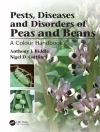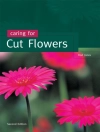This book has combined information on the most recent agricultural practices and breeding methods for ornamental crops. The applications and benefits of hydroponics systems over traditional soil culture growing systems are also discussed. The role of current breeding tactics, such as gene editing tools like CRISPR Cas9, in the development of ornamental crop traits has been debated. The specifics of omics approaches to combat biotic and abiotic stresses in ornamental plants using modern breeding have been thoroughly studied. The critical significance of epigenetic control in ornamental plant development is also highlighted. This book discusses the importance of microbes in sustainable floriculture. Domestication and culture of wild ornamentals have also been considered. This book compiles an in-depth understanding of globally leading cultivated ornamentals and the most important cultivated ornamentals in India. Also, the important domains, i.e., pests and diseases and management in ornamentals and the economic services of ornamental cultivation are discussed. The most recent advances in urban floriculture and the future of smart horticulture have been examined. Nanotechnology uses in ornamental horticulture have been exclusively discussed.
This book is a ready reckoner of the advances made in the field of ornamental horticulture for the scientists, graduate students, research scholars, breeders, farmers, and market managers of public and private sectors. This book will establish potential links between inter-disciplinary topics of research, such as aspects of floriculture, plant biotechnology, microbiology, and nanotechnology. This book series will take research in floriculture to a new frontier. This book serves as an excellent guide to formulating public-private collaborative research for future innovation in the floriculture frontiers.
Tabla de materias
Chapter 1. Ornamental Horticulture and Landscape Gardening: An Overview and Introduction.-Chapter 2. Protected Cultivation of Floriculture Crops–Innovative Technologies and Future Challenges.- Chapter 3. Ornamental plant breeding for improved floral attributes: entering a new era.- Chapter 4. Molecular breeding in ornamental crops: current trends and future prospects in the genomic era.- Chapter 5. Recent developments in soilless cultivation and their implications in floriculture.- Chapter 6. Tissue culture mediated interventions in Ornamental plants: Methods and Application.- Chapter 7. Micropropagation technology for improvement of ornamental plants.- Chapter 8. Transgenic approaches for accelerating breeding of ornamental crops.- Chapter 9. State of the art of omics technologies in Ornamental Plant Research.- Chapter 10. Genome Editing in Ornamental Crops: Progress and Challenges.- Chapter 11. Pre-harvest technologies; floriculture sustainability initiative.- Chapter 12. Different pre-harvest factors and their role in the Floriculture.- Chapter 13. Post-Harvest Technology for Commercial Floriculture.- Chapter 14. Using wild plant species in ornamental horticulture – a possible future.- Chapter 15. Green walls, green roofs, and urban city landscapes as nature-based ecological solutions.- Chapter 16. Extension networks and floricultural advancement dissemination.- Chapter 17. Nanotechnology in ornamentals: Current trends and future aspects.
Sobre el autor
Dr. Bhavya Bhargava is presently working as Sr. Scientist (Floriculture), at Department of Agrotechnology, Council of Scientific & Industrial Research – Institute of Himalayan Bioresource Technology, Palampur, Himachal Pradesh, India. He has a Ph.D. in Horticulture (Floriculture and Landscaping) from Dr. Y S Parmar University of Horticulture and Forestry, Nauni, Solan, Himachal Pradesh, India. He has qualified ICAR ASRB National Eligibility Test (NET). As a faculty of Agrotechnology, he is involved in teaching of different courses and guiding the Ph D students. He has published numerous research/ review papers in journals of international repute, contributed 14 book chapter, several popular articles, and 8 institutional publications. He is leading various projects as Principal Investigator funded by National funding agencies like CSIR, DST, MSME, NMPB, Mo EFCC etc. He has delivered lectures related to floriculture on TV and radio. Dr. Bhargava has received many awards from various societies and scientific organizations for his scientific contribution.
Dr. Pankaj Kumar currently serves as an Assistant Professor at the Department of Biotechnology, Dr. YS Parmar University of Horticulture and Forestry in Solan, Himachal Pradesh, India. His academic journey includes post-doctoral studies at the National Institute of Plant Genome Research in New Delhi and the Council of Scientific & Industrial Research – Institute of Himalayan Bioresource Technology in Palampur, Himachal Pradesh. Dr. Kumar has 12 years of expertise in horticulture biotechnology, focusing on plant secondary metabolite enhancement through cell and tissue engineering approaches. His accolades include the DST INSPIRE JRF/SRF Fellowship, ICAR AICE-SRF (PGS), and ICAR ASRB National Eligibility Test (NET). Dr. Kumar has an extensive publication record and has filed three Indian patents, one patent published and registered four apple mutants with unique, early color and early maturity characteristics in the Indian National Germplasm Repository (INGR 20103, INGR 20104, INGR 20105 & INGR 20106). Recognized for his scientific contributions, Dr. Kumar has received numerous awards, including the Young Scientists Fellowship Award-2021 (ICMR, New Delhi), Scientist’s Pool Scheme Award-2020 (CSIR, New Delhi), and the SERB-ACS-NPDF Best Poster Award-2022.
Dr. Vipasha Verma is presently working as CSIR-SRA (Scientist’s Pool Scheme) at Department of Agrotechnology, Council of Scientific & Industrial Research – Institute of Himalayan Bioresource Technology, Palampur, Himachal Pradesh, India. She has also worked as Principal Project Associate (2012-2023) in the CSIR-Floriculture Mission, at CSIR-IHBT, Palampur. She did her post-doctoral studies with Prof. Jian Kang Zhu at Shanghai Center for Plant Stress Biology (PSC), Center of Excellence in Molecular Plant Sciences, Shanghai Institutes of Biological Sciences (SIBS), Chinese Academy of Sciences (CAS), China. Out of her postdoctoral work, one Patent (P.R. China) has been granted and one Patent (US) is published. Dr. Vipasha has been awarded DST INSPIRE-JRF Fellowship, sponsored by Department of Science and Technology, Ministry of Science and Technology, Government of India and qualified ICAR-ASRB National Eligibility Test (NET). She has published 16 research/review papers in journals of international repute, contributed 4 book chapters, 3 popular articles and attended various international and national conferences.












